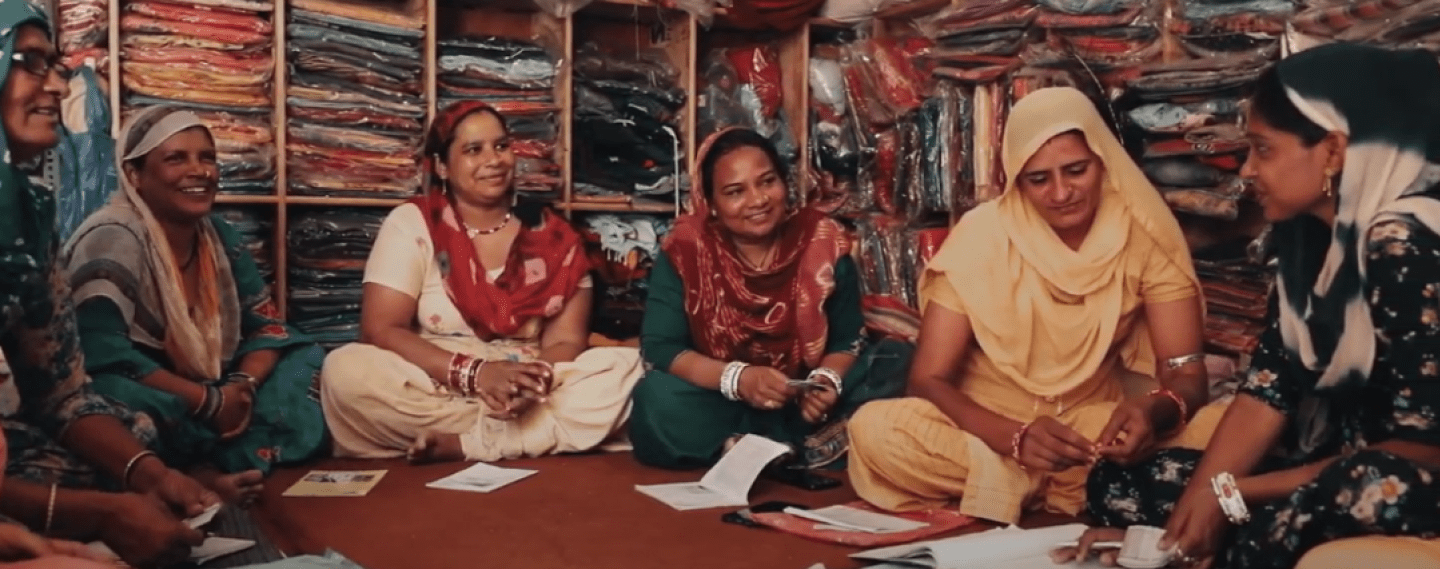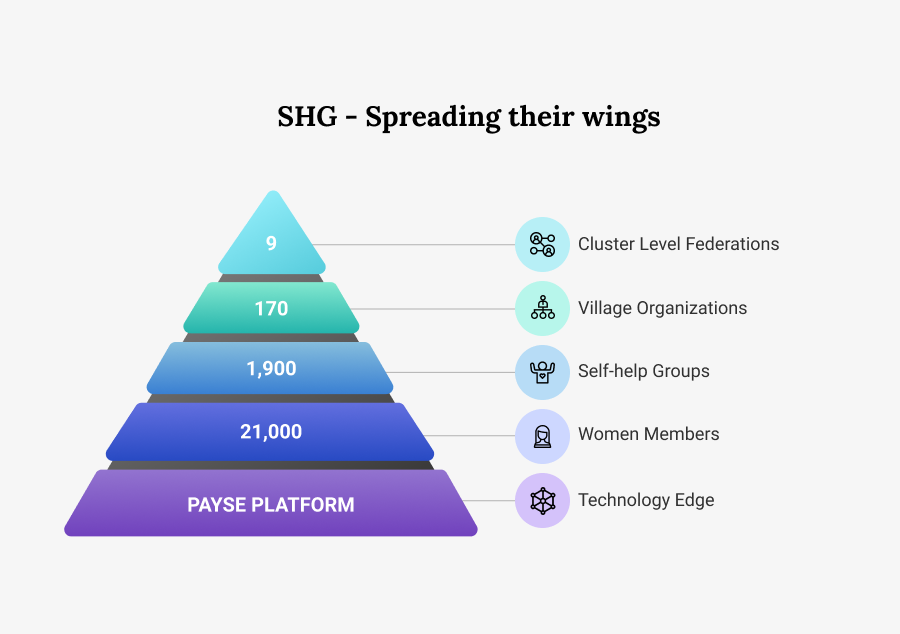It is the story of a group from India’s rural heartlands. A group of women, spread over an entire district in Haryana, are silently sowing the seeds of change that could inspire women all over the country to follow. They are running small businesses and moving away from using cash to using digital currency.
The change may not be apparent to the average visitor to the Fatehabad district. Understand the impact of the difference is only possible if the visitor can find his way to one of the tiny houses or stores where women are closeted in their meeting. It could well become a case study of how rural women are at the forefront of a digital experiment to change the face of India’s financial inclusion metric.
On a typical working day, about 10 in number, a group gathers to discuss their work and the cash they have generated. One of nearly 1900 such self-help groups (SHG), led by Sharmila in Fatehabad, was busy meeting in the warehouse of a shop in the village. As they discuss the cash they have collected for their business, each one of them deposits it with Sharmila. Their money is converted into digital currency in their credit-card-sized cards, called PaySe®.

The record books note every transaction in their presence, and their identities are confirmed against every transaction. Nearly an hour later, when all the cash is collected, it is time for Sharmila to visit the bank with the money collected.
Since the women only have to enter the record of the cash transactions in the registers maintained by the SHG, it saves them time. Families get additional time from the women when they finish work quicker. At least 21,000 women are now working in close cooperation, which has made them more confident than ever before. Nearly 170 village organizations, with one representative from SHGs, are helping put together an overall structure under which the women’s groups are flourishing.
Getting women to handle money and move their ownership from one official channel to another has always been challenging. Across rural areas in India, it could perhaps be identified as one of the biggest bottlenecks for trade to move ahead smoothly.
India has nearly 750 districts, and this digital experiment with women at the core is in just one of them in Haryana. Women, particularly in the rural economy, have at best been at the periphery of economic activities. Bringing about a marked social change that could encourage the women to have a pronounced role in economic activities needed technology to cleave through various barriers and mindsets. The benefits that the technology platform now has the potential to give could change the lives of women all over the country.

Women, who sometimes had to give up a day’s earnings to visit the bank to deposit or withdraw cash, can now overcome the hurdles in a way they could never have imagined. The money they would have to spend, sometimes Rs. 100 per day to visit their SHG is a cost they don’t have to incur. Transfer of funds, which could take a few days earlier, now happens with just a few taps on their smartphones.
The most significant change is that women, despite the small ticket size of their transactions, are building a credit history. Borrowers among them will have a verifiable credit history as well. Through these SHGs, the bank can serve small rural depositors while paying them a market rate of interest.
Banks have seldom been able to reach out to such customers. Since their borrowing needs and ticket size are small, banks can lend money to them in any denomination. Without technology, this new segment of borrowers could not have opened up.
For good reasons, it is catching the attention of policymakers, who can now measure real-time credit availability. For rural or local area banks, the transparent processes could mean good news for their financial health. Organized credit to the rural population also helps cut down their dependence on traditional moneylenders.
Reaching out to potential customers at the bottom of the pyramid could not have been better news for India’s banks. Whether they are technology savvy or wanting to be one, the PaySe® platform could help them reach out to customers whose banking needs are limited. There is lesser credit history available.
Banks would like to reach out to women who run small businesses, either as individuals or when they form a group. These small businesses may be based in non-urban areas but sometimes have strong linkages to the established companies in larger cities. They could be supplying raw material, packaged products, or, sometimes, semi-finished products to various businesses. Banks would like to catch them early by understanding their financial history. It is precisely what the PaySe® platform allows banks to do and policymakers to achieve.
Men in small groups smoking a ‘hukkah’ is a common sight in Haryana, as they engage in a community chat for a brief while. Meanwhile, enterprising women are scripting a change, developing digital payment habits and credit history. Who knows, one day, the menfolk could be left behind. Not surprisingly, banks would love to be on the side of winners.